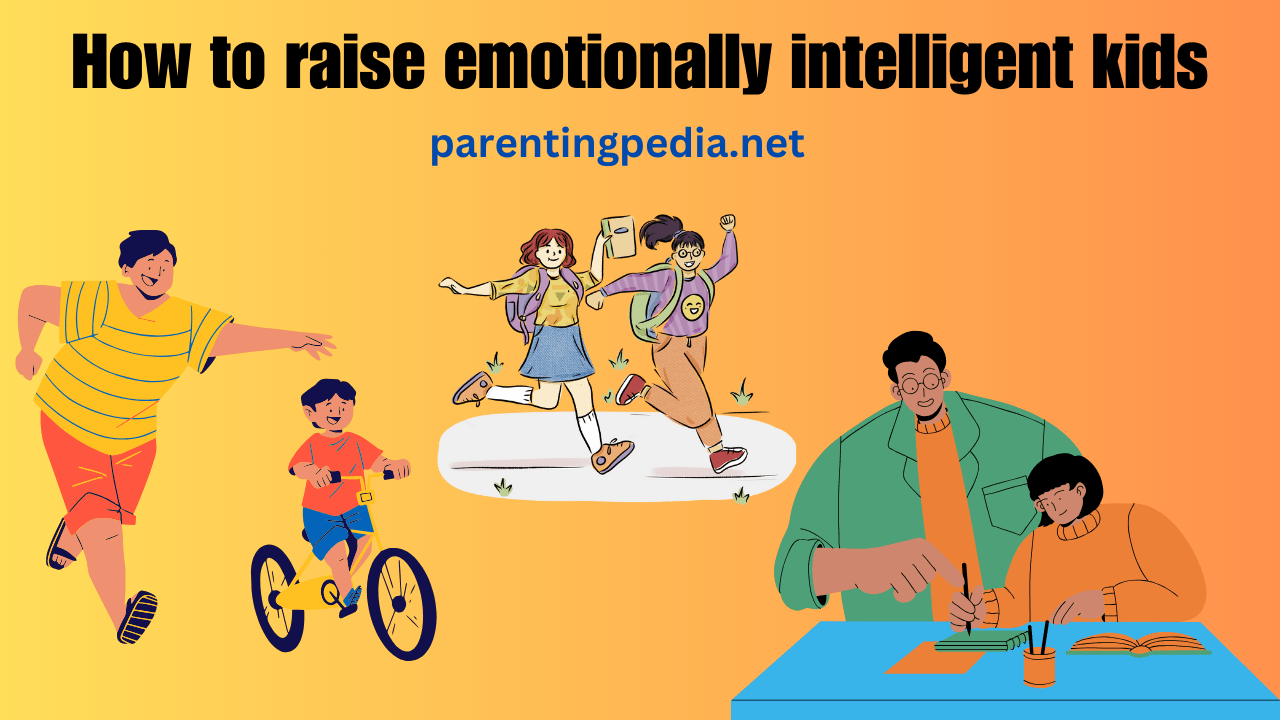Discover the best tips and techniques for raising emotionally intelligent kids. Learn how to nurture their emotional intelligence for a well-balanced and successful future. In the hustle and bustle of modern parenting, we often find ourselves navigating the delicate balance of raising intelligent children with both a high IQ and, equally crucial, a developed emotional quotient (EQ).
The key is to cultivate emotional awareness, self-regulation, and empathy in our little ones. In this Spartan guide to parenting, we’ll explore practical ways to help your child grow into an emotionally intelligent individual. No corporate jargon here – just straightforward advice on how to connect with your child and navigate the ups and downs of their emotions.
Emotional Intelligence
Before we dive into the specifics, let’s demystify emotional intelligence (EQ). Unlike traditional measures of intelligence (IQ), EQ focuses on a person’s ability to recognize, understand, and manage their own emotions, as well as empathize with others. It’s about more than just feeling good; it’s about feeling connected and healthily navigating the rollercoaster of emotions.
Teaching Emotional Literacy
Start by creating a safe space for your child to express their feelings and emotions. Recognize that, like adults, children experience a wide range of emotions – from joy and excitement to frustration and sadness. In the words of Alyssa Blask Campbell, an expert in emotional intelligence, “It’s ok for them to feel a full spectrum of emotions; it’s ok for you to feel those too.”
Don’t dismiss or belittle their emotions. Instead, hold space for them to express what they’re feeling. Say things like, “I can see you’re upset right now. It’s ok to feel that way.” This simple acknowledgment helps your child feel seen and heard, building the foundation for emotional awareness.

The Power of Connection
Connection is the cornerstone of emotional intelligence. As a parent or caregiver, your role is to connect with your child, especially when they’re experiencing negative emotions. Imagine yourself as an emotion coach, guiding them through the turbulent waters of their feelings.
When your child is having a meltdown or tantrum, resist the urge to punish. Instead, empathize with their struggle. Use Spartan language: “I see that you’re upset. It’s hard when things don’t go the way we want them to.” This approach not only helps them feel safe expressing their emotions but also teaches them that it’s acceptable to make mistakes.
Building Self-Awareness
Teaching emotional intelligence involves cultivating self-awareness. Encourage your child to reflect on their feelings and understand why they react the way they do. Ask questions like, “What happened that made you feel this way?” or “Can you tell me more about what you’re feeling?”
In the words of John Gottman, a renowned psychologist, “Emotion-coached children are more likely to become great kids.” By helping your child recognize and label their emotions, you empower them to navigate the complex landscape of feelings.
Navigating Mistakes and Disappointment
In the journey to raise emotionally intelligent children, it’s essential to let them know that making mistakes is not only acceptable but a natural part of learning. When they’ve made a mistake, encourage them to apologize and piece together what went wrong. This problem-solving approach helps them develop emotional regulation skills.
For instance, if your child expresses disappointment, ask them, “What does disappointment feel like for you?” This acknowledges their emotions and allows them to connect with you on a deeper level.
Mindfulness in Parenting
Amid the chaos, take small steps toward mindfulness. Be present in the situation, just like you want your child to be. Remember, emotions are acceptable, but all behaviors might not be. Set limits when necessary, and do it with love. Say things like, “I understand you’re upset, but it’s not okay to hit. Let’s find a better way to solve this problem.”
Creating a mindful and loving environment helps your child feel safe, fostering emotional security and resilience.
Read More: Some Fun and Educational Activities to Boost Your Child’s Brain Development
Conclusion
In the journey to raise emotionally intelligent children, remember that it’s not about being a perfect parent but about consciously connecting with your child. Create a safe space, acknowledge their feelings, and guide them through understanding and managing emotions. As we navigate the challenges of parenting, let’s foster emotionally resilient kids who feel seen, heard, and ready to face the world.
FAQs
Q1: How can I help my child self-regulate during a meltdown?
A1: When your child starts to melt down, take a deep breath and try saying, “I can see you’re upset. Let’s take a moment to breathe together and calm down.”
Q2: My child often says hurtful things when they’re upset. How can I address this?
A2: Teach your child to express their feelings without hurting others. Say things like, “It’s okay to be angry, but it’s not okay to say hurtful things. Let’s find a better way to communicate.”
Q3: What if my child doesn’t want to talk about their feelings?
A3: Respect their need for space, but let them know you’re there whenever they’re ready to share. Say, “I’m here for you whenever you’re ready to talk. You’re not alone.”

